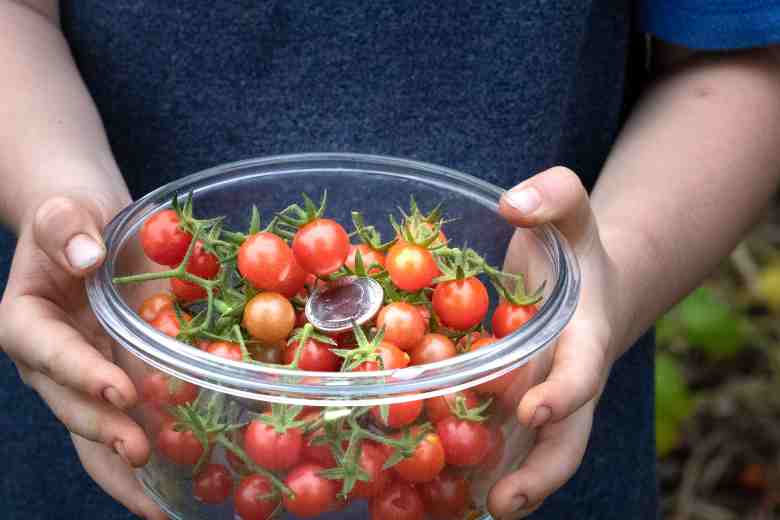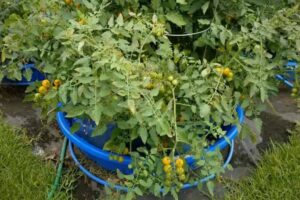
The Everglades tomato is a unique heirloom variety of tomato grown in the Florida Everglades region. It has a deliciously sweet flavor, producing tomatoes that are said to taste almost like a tropical fruit. However, despite its wonderful qualities, Everglades tomatoes have remained relatively unknown outside of South Florida. There are several key reasons why the general public is not very familiar with this unique tomato variety.
1. Lack of Commercial Production
One major factor is that Everglades tomatoes are not commercially produced on a large scale. They are typically only grown by small, local farmers in the Everglades region. Their delicate nature makes them difficult to harvest, transport, and market on a large commercial level.
The vines are prone to snapping if overburdened with fruit and the tomatoes bruise and rot easily if not handled with extreme care. This means they are really only suitable for short-distance, small-scale farming and direct sales to local consumers.
Without major commercial farming and distribution networks, they have not been widely marketed or made available to consumers across the country.
2. Delicate Fruit
Speaking of their delicate nature, the tomatoes themselves simply do not hold up well to shipping or long-distance transport. Their thin skins make them highly susceptible to bruising or rotting if jostled around. They also do not ripen well after being picked and do not have a long shelf life.
All of these factors make Everglades tomatoes challenging to distribute over long distances through conventional grocery store supply chains.
Unless consumers live near or visit the Everglades region, it is difficult to find these tomatoes at major supermarkets due to issues keeping the quality high during transport.
3. Regional Specialty
Because Everglades tomatoes are really only viable for small-scale, local farming, their production and sales have remained a regional specialty crop. Community supported agriculture (CSA) programs, farmers markets, and u-pick operations in South Florida are where most consumers find them.
Outside of this immediate region, there has been little incentive to mass produce or broadly market them on a national level due to the distribution challenges.
As a result, they have remained a “best kept secret” mostly known among locals and foodies near the Everglades rather than achieving mainstream name recognition across America.
4. Lack of Formal Breeding
Another reason Everglades tomatoes are not as well-known is that there has been relatively little formal breeding or varietal improvement work done with this heirloom strain over the years.
Compared to hybrids bred for long-distance shipping qualities, Everglades tomatoes remain much as they naturally developed – with thin skins, irregular shapes, and other traits adapted for the local tropical climate but not modern agriculture and distribution needs.
Without dedicated breeding to select for hardier, more shippable varieties while retaining flavor, the commercial potential has remained limited.
5. Focused on Local Agriculture
The economy and culture around the Everglades region have also traditionally centered more on local, small-scale specialty crop farming rather than large-scale agribusiness.
This means less resources have gone into R&D, marketing, and distribution needed to turn Everglades tomatoes into a nationally branded product.
The community takes pride in the heirloom variety but has prioritized supporting small family farms and local food security over industrialized agriculture.
So while demand is strong nearby, expansion of awareness and market presence beyond South Florida was never the main goal.
6. Limited Availability Period
Finally, the growing season for Everglades tomatoes is relatively short compared to varieties cultivated in field agriculture worldwide.
As a tropical fruit native to the Everglades climate, the season runs from approximately June through September. Outside of this window, it is difficult for consumers farther north to find fresh specimens.
Coupled with the distribution challenges, this makes a sustained national or international marketing campaign difficult compared to crops that can be grown year-round in various climates.
7. The Lack of a Brand Champion
No single person or business has truly emerged as the passionate and vocal champion of marketing and advocacy for the Everglades tomato nationally. Small-scale growers promote it locally but lack cohesive cooperation on a grand scale.
While a few chefs glowingly review it, no iconic figure has elevated its profile by consistently featuring it at a renowned restaurant or writing glowing tribute articles establishing it as heritage food royalty similar to how authors put certain European varieties on the map decades ago. Momentum requires brand evangelists to rally others long-term around a shared cause of recognition.
Looking Towards the Future
However, as more consumers seek out unique foods tied to heritage and place, interest in specialty crops like Everglades tomatoes may grow. Some farmers are experimenting with modified growing techniques and structures like high tunnels that could possibly extend the season lengths. Breeding programs aim to develop heartier sub-varieties while retaining taste.
And marketing via channels like e-commerce opens new possibilities for direct sales beyond the Florida borders.
Perhaps in coming years, a combination of varietal improvement, local food tourism promotion, niche market distribution, and digital platforms could help spread more awareness of the special qualities of these tomatoes far outside the Everglades region.
After all, they offer a true taste of Florida’s unique tropical heritage that deserves recognition.
With dedicated farming and marketing efforts, the public appreciation and availability of Everglades tomatoes may finally match their wonderful flavor that foodies already know and love.
FAQ
What is the significance of Everglades tomatoes?
Answer: Everglades tomatoes are a unique variety of heirloom tomatoes that are native to Florida’s Everglades region. They are prized for their sweet flavor and robust texture.
Are there any plans to make Everglades tomatoes more widely available?
Answer: Yes, there are plans to make Everglades tomatoes more widely available in the near future. The Florida Department of Agriculture and Consumer Services is currently working to increase production of the tomatoes in order to make them more widely available.
Conclusion
In summary, the Everglades tomato remains relatively unknown to the general public largely because of difficulties producing, shipping, and marketing this heirloom variety on a larger commercial scale. Its delicate nature, lack of breeding history, seasonality, and focus on small local farms have all contributed to the tomato staying a regional specialty crop. However, renewed interest in heritage foods combined with innovation may help spread appreciation of these tasty tropical fruits to a broader audience in the future.





